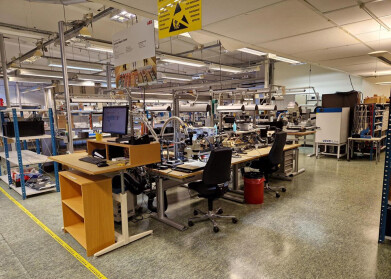Waste management
ABB circularity program reduces industrial electronic waste sent to landfill by 93 percent over four years
Nov 27 2024
A four-year analysis by ABB Energy Industries Service and its recycling partners shows a dramatic reduction in electronic waste sent to landfills, thanks to the company’s Parts Circularity Program. This initiative, launched to extend the life of used parts and minimise electronic waste, has reduced landfill waste from 214.5 kg in 2020 to just 14.2 kg by the end of 2023. This reduction represents a 93 percent decrease in the amount of electronic waste returned by customers and ultimately sent to landfill.
The program focuses on repairing, reusing, and recycling faulty parts to conserve resources and reduce the need for new materials. By reconditioning used parts, ABB not only extends their operational life but also reduces the overall environmental impact of manufacturing new components. This effort contributes to the company’s broader sustainability goals, aligning with global initiatives to address the growing issue of electronic waste. The global production of electronic waste is expected to rise from 62 million tons annually to 82 million tons by 2030, underscoring the urgent need for programs like ABB’s to mitigate this trend.
Through partnerships with recycling experts such as Stena Recycling in Europe and Ohio Drop Off in the U.S., ABB ensures complete traceability of each returned part. These partnerships provide certified reports that assess the material properties of the parts, offering transparency in sustainability reporting. This helps ABB and its customers better understand the environmental impact of their operations and improve their sustainability practices.
ABB’s program also includes financial incentives for customers to return faulty parts for remanufacturing or refurbishment. This not only reduces waste but also provides customers with cost-effective, sustainable alternatives to purchasing new parts. In cases where parts cannot be repaired or reused, ABB ensures they are responsibly disposed of. The company recovers valuable materials from these components, helping reduce reliance on virgin resources and supporting the circular economy. Some parts are even disassembled, cleaned, inspected, reconditioned, and reassembled to create remanufactured parts, contributing to a more sustainable supply chain.
Marie-Hélène Westholm-Knebel, Global Head of Sustainability at ABB Energy Industries, emphasised the importance of end-to-end traceability in product life cycles. “End-to-end traceability and extending the lifecycle of our products is crucial, especially in the face of a rising global demand for critical materials. Without transforming production and consumption models to support the circular economy, we cannot effectively preserve natural resources and reduce emissions,” she said.
Paul Sundt, Service Segment Manager at ABB Energy Industries, highlighted the program’s success at industrial plants around the world. “The success of this program has already been proven at plants where our customers have service agreements that enable them to actively contribute to the circular economy,” he said. “We hope to see this continue as more customers realise the value and sustainability benefits it brings to their supply chains.”
ABB’s circularity strategy is a key part of its sustainability agenda. The company is focused on preserving resources at every stage of a product’s lifecycle and is working to build a global network of partners to drive circular practices. Through these efforts, ABB aims to foster new business models that emphasise repair, reuse, and recycling, contributing to a more sustainable future for the industry and the planet.
Events
Apr 21 2025 Shanghai, China
May 11 2025 Vienna, Austria
May 18 2025 Algiers, Algeria
23rd International Water Management Exhibition
May 20 2025 Prague, Czech Republic
Singapore International Water Week Spotlight 2025
Jun 23 2025 Singapore














